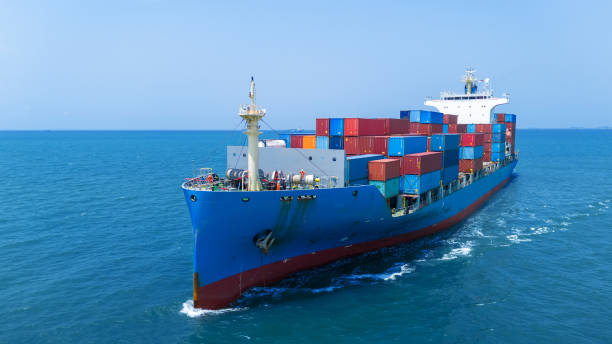

Challenges in Cross-Border Logistics and How to Overcome Them
Challenges in Cross-Border Logistics and How to Overcome Them
Cross-border logistics is a critical component of global trade, enabling businesses to expand their reach and serve international markets. However, navigating the complexities of cross-border supply chains presents several challenges, ranging from regulatory compliance to transportation inefficiencies. Addressing these challenges effectively is key to ensuring smooth and cost-effective logistics operations.
Cross-border logistics will always present challenges, but proactive planning, leveraging technology, and strong partnerships can significantly enhance efficiency. Businesses that stay ahead of regulations, embrace innovation, and implement robust risk management strategies will be better positioned for global success.
Below are some of the most pressing issues in cross-border logistics and strategies for overcoming them, supported by real-world examples.
1. Customs Clearance Delays and Bureaucracy in Cross-Border Logistics
Challenge
One of the most significant bottlenecks in Nigeria’s cross-border logistics is customs clearance delays, caused by:
- Lengthy Processing Time – Manual inspections, inconsistent regulatory enforcement, and inadequate staffing at border posts result in slow clearance times.
- Excessive Documentation – Importers/exporters must provide multiple forms, such as invoices, certificates of origin, and duty payment receipts, often leading to errors and re-submissions.
- Inconsistent Policies – Frequent changes in trade policies and a lack of uniform enforcement across different border points create confusion and delays.
- Corruption and Informal Payments – Some customs officials demand unofficial fees to expedite processing, increasing costs and uncertainty.
- Limited Integration of Technology – Many border posts still rely on paper-based systems instead of digital processing, making verification cumbersome.
- Border-Specific Challenges – Different border points (e.g., Seme, Idiroko, Jibia, Mfum) have varying levels of efficiency, with some being notorious for congestion and extortion.
Solutions
To address these challenges, businesses and the government must adopt efficient processes and leverage technology.
1. Digital Customs Processing
- Automation of Clearance Procedures: Implementing an end-to-end electronic customs processing system can reduce paperwork and streamline approvals.
- Nigeria Customs Service (NCS) E-Customs Project: This initiative aims to digitize customs operations, reducing human intervention and expediting processing.
- Electronic Single Window System: Integrating all trade-related agencies (e.g., NAFDAC, SON) into a unified online platform will simplify clearance.
- Electronic Cargo Tracking: Using blockchain and IoT-enabled tracking for real-time visibility into shipments can minimize delays.
2. Engagement with Certified Customs Brokers
- Why Use a Broker? Certified customs brokers understand the regulatory landscape and can help businesses avoid common pitfalls.
- Accredited Brokers List: Companies should work with government-certified brokers to ensure compliance with customs laws.
- Pre-Arrival Processing: Brokers can facilitate advance documentation submission to reduce clearance time.
3. Leveraging Trade Facilitation Programs
-
ECOWAS Trade Liberalization Scheme (ETLS):
- This program allows duty-free access for goods originating from ECOWAS countries.
- Nigerian businesses should obtain an ETLS certificate to benefit from tariff exemptions.
-
African Continental Free Trade Area (AfCFTA):
- Under AfCFTA, businesses can trade with reduced barriers across Africa.
- Proper classification and registration with the Nigerian Export Promotion Council (NEPC) will ensure smoother clearance.
-
Pre-Approved Fast-Track Systems:
- Companies with a history of compliance can apply for Authorized Economic Operator (AEO) status, allowing expedited clearance.
4. Policy Advocacy and Government Engagement
- Businesses should lobby for policy consistency and demand greater transparency in customs processes.
- The private sector can collaborate with organizations like the Manufacturers Association of Nigeria (MAN) and Nigerian Association of Chambers of Commerce, Industry, Mines and Agriculture (NACCIMA) to push for reforms.
5. Capacity Building and Training for Customs Officials
- Enhancing customs officer training on digital tools can improve efficiency.
- Establishing anti-corruption measures and whistleblower protections will reduce informal levies and bribery.
2. Multiple Taxation and Informal Levies in Cross-Border Logistics
Challenge
Multiple taxation and informal levies are significant obstacles for businesses engaged in cross-border trade in Nigeria. These financial burdens increase the cost of doing business and discourage economic growth. The key issues include:
- Overlapping and Redundant Taxes – Traders often pay multiple taxes to different government agencies, including the Nigeria Customs Service (NCS), National Agency for Food and Drug Administration and Control (NAFDAC), Standards Organization of Nigeria (SON), state revenue agencies, and local government councils. These redundant levies lead to high logistics costs.
- Unregulated Informal Levies – Road transport unions, local vigilante groups, and even community groups impose arbitrary levies on cargo movement, particularly along border routes. These charges are unofficial and unpredictable.
- Bribery and Corruption at Border Points – Some customs officials and security personnel demand unofficial “facilitation fees” to speed up processing, increasing the cost of doing business.
- Unclear and Changing Tax Policies – Businesses struggle with inconsistent tax policies, frequent policy changes, and lack of proper communication from regulatory agencies.
Solutions
1. Work with Recognized Trade Associations to Negotiate Fair Taxation Policies
- Engage Industry Groups – Businesses should align with trade associations such as:
- Manufacturers Association of Nigeria (MAN)
- Nigerian Association of Chambers of Commerce, Industry, Mines, and Agriculture (NACCIMA)
- Freight Forwarders Association of Nigeria (FFAN)
- ECOWAS Business Council
- Advocate for Simplified Taxation – These associations can engage with government agencies to streamline and harmonize tax policies, reducing redundant levies.
- Push for Trade Agreements – Organizations can lobby for greater enforcement of ECOWAS and AfCFTA agreements, which promote lower trade barriers and reduced tariffs.
2. Utilize Digital E-Payment Systems to Avoid Cash-Related Extortion
- Adopt Electronic Payment Solutions – Using cash increases the risk of extortion at border checkpoints. Businesses should:
- Use e-payments for official levies through platforms like the Nigeria Customs Service (NCS) online portal.
- Leverage digital invoicing systems to prevent unauthorized cash payments.
- Work with customs-approved clearing agents to process payments securely.
- Encourage Government to Mandate Cashless Payments – Businesses should advocate for full adoption of cashless border transactions to minimize bribery.
3. Advocate for Increased Government Transparency and Policy Reforms
- Push for Policy Reforms – Businesses and trade associations should work with government bodies to simplify the tax structure and reduce arbitrary levies.
- Monitor and Report Corrupt Practices – Companies should report illegal levies through anti-corruption hotlines of agencies like the Independent Corrupt Practices Commission (ICPC) and Economic and Financial Crimes Commission (EFCC).
- Strengthen the Role of ECOWAS and AfCFTA – Nigeria should work closely with ECOWAS and the African Continental Free Trade Area (AfCFTA) to implement standard trade policies and reduce cross-border tax inconsistencies.
By adopting digital customs systems, working with certified brokers, and leveraging trade agreements, Nigerian businesses can navigate customs clearance challenges more efficiently. Ongoing government reforms and private sector advocacy will be key to achieving a smoother cross-border logistics system. To overcome the challenges of multiple taxation and informal levies, businesses must collaborate with trade associations, adopt digital payment systems, and advocate for policy reforms. Strengthening trade facilitation frameworks and eliminating corruption at border points will significantly improve Nigeria’s cross-border logistics efficiency.
Categories
Tags
You May Also Like
-
-
January 23, 2026
-
-
January 19, 2026
-
-
December 4, 2025



